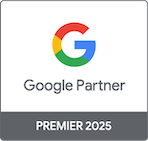
Dealing With Facebook Ad Fraud In 2023
Abisola Tanzako | Mar 29, 2023

Facebook is a social platform that has established itself over the years as the most extensive social media network, growing to include Instagram and WhatsApp. Not only is Facebook now the biggest social media platform, but it is also a proficient way of spreading advertising content.
Table of Contents
Unfortunately, the expansive growth of the Facebook market has also led to a massive increase in ad fraud and fake clicks. Running Facebook advertisements isn’t anything new, but with the rise in prevalent fraud, it is almost impossible not to wonder how reliable Facebook advertising is due to the amount of click fraud.
Over 2 billion people use Facebook, of which there are about 270 million fake or duplicate accounts. This number is almost the entire population of America. Bearing this in mind, advertisers should be fully aware of fake Facebook clicks and their potential risk to their advertising funds and revenue.
What Is Facebook Ad Fraud, and How Does It Work?
In the same way, there is prevalent online advertising fraud, and there is also advertising fraud on Facebook. Most of the ad fraud on Facebook is from fake clicks and invalid clicks. These clicks come primarily from:
- A fully automated traffic like web crawlers or bots
- Clicks farms planned to drive traffic to sites and pages
- Competitors who are out to sap your advertising budget
- Parties who are uninterested. These parties usually browse or accidentally click your ad.
Oftentimes, fraudsters use genuine adverts to defraud potential clients. In 2019, Facebook sued a Chinese company for ad fraud. They allegedly sued the company for hacking Facebook users with malware and using their accounts to run ads and make millions of dollars.
Unlike Google Ads, the Facebook audience network is designed so that ads are displayed on the platform. This means mobile apps or external websites can log on to view displayed ads on Facebook. If a user clicks on the ad, the site owner receives payment for ad hosting.
Types Of Facebook Ad Fraud
As mentioned, most Facebook ad fraud comes from fake or invalid clicks. These clicks are most likely from:
- Bot traffic: Bot traffic is the presence of non-human traffic on a page or site. Unfortunately, bot activities are counted as clicks on your page and will usually not translate to sales or interactions. These bots may come in the form of malware, crawlers, viruses, or any other kind of bot activity.
- Click farm: click farms are specifically designed to drive traffic to a page or a site and increase the site’s or page’s popularity. These clicks are done by a group of people hired to click on ads and user profiles. Sometimes the process could be automated. This kind of fraud is prevalent in low-income countries like the Philippines and India. People who buy followers’ likes and intend to drive traffic to their page must go through click farms to make a purchase.
- Competitors: Competitors are out to ensure you exhaust your advertising budget without making a profit. They are very much aware of how advertising campaigns work, and they keep clicking on your ads to exhaust them. Clicks from competitors are among the most damaging kinds of fraud on all advertising platforms.
- Accidental clicks: these are clicks unintentional clicks. It could be from people needing to pay attention to what they are clicking on or from a post that attracts random traffic.
How To Avoid Click Fraud
Recently, Facebook has faced several scandals due to the recurrent scams on its platform. They are trying to combat ad and click fraud and reduce bad press. The team also makes some efforts to reduce the number of spam pages. While Facebook is trying to fight the scam, here are some ways you can avoid invalid clicks on your Facebook ad:
- Pay extra details when setting up your ad: as much as it is easy to set up your Facebook ad, it is also easy to get it wrong. Taking advantage of Facebook’s documentation and tutorial is highly recommended. This tutorial will help you know all you need to know to set up an online ad and ensure the right audience and demographics are captured. Avoiding Facebook click fraud starts with doing it right!
- Select your audience wisely: the good thing about Facebook ads is that you have much control over who sees you and where your ad reaches. You can determine the particular geographical location, age group, etc., which is a great advantage. With that being said, it is easy to be tempted to want your ad to reach a broad audience and have clients rolling in, but it is wiser to start with a concise audience. Take a moment to select your target audience, location, etc. This will help considerably to reduce fraudulent clicks.
- Avoid audience networking. Audience networking partners with other sites or pages to feature your ad. This means that your ad will reach a wider audience, but it also means that you have less control over it once displayed on your partner’s site. This method can be effective for your ad because it gives you various ways to advertise it. However, it is essential to note that this method is straightforward for click fraudsters to penetrate. If you ever need to use audience networking, carefully consider that option. Facebook has made it easy to use audience networking; it is now automatic, so before your ad goes live, deactivate that feature.
- Block specific location and users: In the same way you can select a particular location or age group to view your ad, you can also block specific users or sites from accessing your ads. You can use preemptive blocking and monitor the traffic and activities on your page by using a tracker. If you see a particular IP visit your page multiple times or the traffic flow from a specific user without purchasing anything, you can block them.
- Click fraud protection: you can seek a professional protection package for your Facebook page. This will protect you from wasting and losing a large amount of money. Without click fraud protection, you might be unable to identify fraudulent activities effectively. Even beyond that, you might need help to handle the effect of fraudulent activities on your page effectively.
In Conclusion
We daresay that Facebook is one of the largest and most used advertising platforms. The visibility and engagement your brand/ product and services get from Facebook and Metaverse advertising is almost unmatched. Still, if you want to stay in control of your ads and revenue and enjoy your ad being seen by real people only, you should get professional protection for your page.




